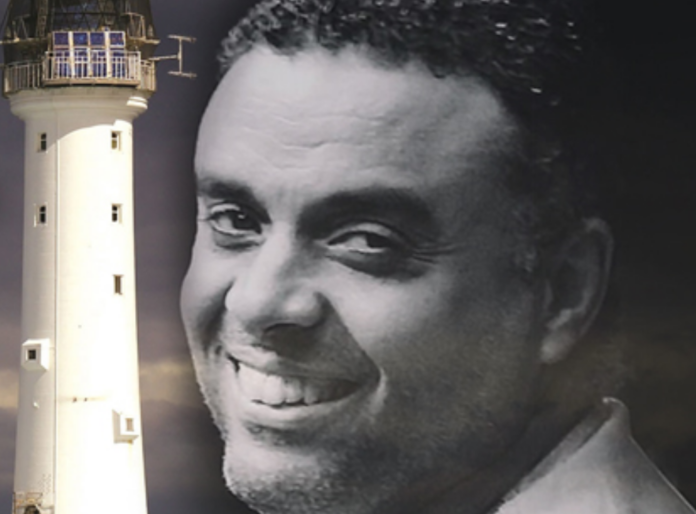
A former bishop of Lighthouse Chapel International, Larry Odonkor, is uneasy about his birthday, which falls on July 9.
He will turn 45, but the fear of growing old in itself is not his headache as he marks four and a half decades of his life.
Forty-five is a number that forces him to take his life and those of his dependents into account.
Has he achieved his purpose? Has he put his children on the path of success? Has he saved enough for his future? Has he prepared for pension?

Pension is a painful word for the bishop. Some 15 years to his retirement, he is living with the heartache that Lighthouse Chapel International did not pay his mandatory pension contribution for a cumulative 14 years.
But, like a Liverpool FC fan, Bishop Odonkor does not walk alone in this regard.
Five of his colleagues in the ministry — a bishop, three reverend ministers, and a pastor— hadn’t had their Social Security and National Insurance Trust (SSNIT) contributions in full.
Some did not have even a single month of their SSNIT contributions paid at all.
Together, these six ministers of God laboured for a cumulative 42 years and five months without the payment of their pension contributions, which employers are mandated by law to pay on behalf of their employees.
They worked in Lighthouse but their future, life after retirement, is dark, they say.
They say they were drawn into the ministry by their spiritual father, founder and Presiding Bishop of the church they served, Dag Heward-Mills.
Most of them, who served as student-leaders in the gospel, say they were not given employment letters. There was no formal employer-employee relationship when they transitioned into full-time service of the Lord after graduation.
The six have resigned from the church for various reasons and dragged the Lighthouse Chapel International, which used to be the epicentre of their spiritual and social lives, to court.
They are praying the court to compel the church to pay their SSNIT contributions as well as other rights they say the church violated since they went into ministry there, some immediately after leaving the university.
They believe there are more silent victims among the 111 bishops and over 2,300 pastors of Lighthouse who are currently shepherding more than 6,070 churches in 92 countries across the world. Apart from enforcing their rights, they say the reason they are speaking up is to ensure that those still serving in the church do not suffer what they have been through.

L-R: Larry Odonkor, Emmanuel Oko Mensah, Edem Kofi Amankwa, Seth Sarpong Duncan, Edward Laryea, and Faith Fiakojo. They have resigned from Lighthouse and have sued the church for violating their rights.
The Fourth Estate delves into the lives of these six ministers of God and what they say is a culture of abuse, exploitation, and pressure on some pastors to divorce their wives, all in the name of advancing the work of God. To them, there is some darkness in the Lighthouse Chapel International, which is now called the United Denominations Originating from the Lighthouse Group of Churches (UD-OLGC).
In the first of this series, we focus on allegations by the pastors about the total or partial non-payment of their pension contributions by their employer.
Alleged Non-payment of SSNIT Contribution
In December 2001, Larry Odonkor laid down his BSc. Biological Science degree awarded him at the Kwame Nkrumah University of Science and Technology (KNUST) and picked up a new cross –- full-time ministry with Lighthouse Chapel International. He graduated in July 2001, at age 25.
For the next 19 years of his life, the vibrant graduate would open branches of the church in several African countries such as Ethiopia, Central Africa Republic, South Africa, and Madagascar. In Ghana, he laboured in the Lord’s vineyard in Akim Oda, Suhum, Wa, and in Accra.
“And I heard God say to me on 6th March 2020, that ‘if you don’t leave, you will not fulfil your ministry,’” he recounts the turning point in his life, the decision to turn his back on the church which had defined him.
He resigned in April 2020.
While thinking about his future after the resignation, he learned of a shocking past. Only five years of pension contributions had been paid. Some 14 years of active service had vanished off the radar of his pension contributions.

“I was disappointed. I felt used because this is basic. So, while my wife and I were going around planting churches, something as basic as SSNIT was not even paid,” he shakes his head.
Bishop Emmanuel Oko Mensah did not travel around as much as Larry Odonkor. He completed the Kwame Nkrumah University of Science and Technology (KNUST) in July 2001 with a degree in Civil Engineering.
He did his compulsory national service with the Roads Department of the Accra Metropolitan Authority (AMA) and said he yielded to “pressure” from Bishop Dag Heward-Mills to join the full-time ministry, which he did in December 2002.
He was stationed at The Qodesh, the headquarters of the church, which is painted black and white, starkly contrasting colours like a depiction of right and wrong. Some things went right for him as his ministry won souls and mobilised resources to expand the church.
But some things were going wrong for him, he recounts his journey with Lighthouse and his spiritual father to The Fourth Estate.
He was posted to Cotonou in Benin and later Ouagadougou in Burkina Faso, all brief spells on the mission field. But in 2019, he learned that seven months of his SSNIT had not been paid.
It was his wife who made that discovery. She works at SSNIT and had heard harrowing tales of the painful lives of pensionless workers. Her husband would not be one of them, she believed. But she verified.
Some crisp clicking of her computer mouse, her husband’s financial future on a spreadsheet popped up before her. That was where she detected that this future had seven figures missing. She figured it must have been an oversight on the part of the church administration.
So, the wife of the bishop, who was also a member of the church, called administrators to draw their attention to the “error”. She got a severe reprimand, Bishop Oko Mensah says. And he got his own, too.
“I received a call from the Senior Associate Minister, rebuking me and blasting me, telling me that my wife was way out of order for asking questions about my SSNIT contributions. He told me that what my wife did was wrong and so I should rebuke her,” he recalls the reaction.
In another recurring story of alleged negligence, Rev. Edward Laryea also says his SSNIT was not paid for three years. Rev. Laryea, a University of Cape Coast (UCC) graduate in Chemistry completed his programme in July 2005 and joined the full-time ministry at Lighthouse in December that same year.
MORE:
He got to know about this while he was stationed at Kade in the Eastern Region in 2008. The Church had introduced a new policy that would change his life in many ways.
It was called “Become Who You Can Become.” It basically meant that the mother church was not going to support missions that were more than two years old. They now had to raise money from the mission field in order to pay themselves and build churches.
And so, Rev. Edward Laryea, who was in his early twenties, visited the SSNIT office at Kade to find out the status of his pension contributions.
“They told me that ‘Lighthouse has not been paying anything for you.’”
He was already three years into full-time ministry. Edward Laryea said he began the payment of his own SSNIT when he headed the church in Kade.
“I believe that if I had not started payment, I would be here telling you that not even one cedi was paid for me [after 12 years].”

He resigned in 2017 after 12 years of “labouring” with his wife in Kade and Takoradi on a salary of GHS 800 a month.
Three other Ministers–Seth Duncan, Edem Kofi Amankwah, and Faith Makafui Fiakodzo–were also victims of this pattern of alleged non-payment of pension contribution by the church.
Seth Duncan, a former seaman of the Ghana Navy, went into full-time ministry in 2008 but resigned after 10 years. After completing senior high school in 2002, he joined the Ghana Navy that same year, but resigned in 2005, He attended the bible college of Lighthouse for three years before becoming a full-time minister of the gospel in 2008.
He says he planted churches in Paga, Tamale, and Kasoa. But his SSNIT was paid for only two months.
Rev. Edem Kofi Amankwah obtained a Bsc. Actuarial Science degree from UCC and went into full-time ministry in November 2007 after graduating in May that same year. But he resigned in 2016 after serving in Liberia and Nigeria. His SSNIT for the entire duration of his ministry-9 years was not paid.
Pastor Faith Makafui Fiakodzo graduated from the church’s Bible School-Anagkazo and went into full-time ministry in 2013. For three years, he was not paid any salary. And when he did receive any payment, it was GHS 300 a month.
Response Sought from Lighthouse
On March 17, 2021, The Fourth Estate wrote to the United Denominations of Lighthouse Group of Churches for a response to the alleged default in the payment of SSNIT contribution and other issues raised by the named pastors.
At the time of filing this report, the church had not responded to the letter. (Sources close to the management of the church told The Fourth Estate that the church would not respond to the request for comment, but the church is yet to communicate that.)
However, concerning the payment of SSNIT for Larry Odonkor, there is a letter from the church explaining it does not owe the former bishop any payment of outstanding SSNIT contributions.
This letter from the church is dated September 29, 2020, and signed by Mrs. Rebecca Addae, the church’s Human Resources Director. It was written in response to a letter that Larry Odonkor instructed a labour consultant, Austin Gamey, to write to the church.
The church, in this letter, gives eight reasons it does not owe any SSNIT contribution to its former minister:
- The letter explains that despite Bishop Larry Odonkor’s 19 years of service, he was only actually employed with Lighthouse Chapel International Ghana for five years – from 2005 to 2010. It says the church in Ghana paid all his SSNIT contributions during this period.
- The letter explains that between 2001 and 2005 when Larry Odonkor began full-time ministry, he was only a volunteer. And so right after university while he worked to open churches in Ethiopia, Central Africa Republic, and in Suhum, he was just volunteering.
- It says, between 2010 and 2018, when the Bishop was opening churches in South Africa, he was not working for Lighthouse International Chapel Ghana but rather Lighthouse International Chapel South Africa.
- According to the Light House Chapel International, its Ghana branch is “legally, financially, administratively and governmentally” different from any other branch outside the country. The only thing the church in Ghana shares with its international branches such as the one in South Africa is a “spiritual relationship.”
- And so, the church’s letter states, when the Presiding Bishop, Dag Heward-Mills, transferred Bishop Larry Odonkor from Ghana to South Africa, his work was “not a continuing employment from LCI Ghana neither was it a secondment like Ashanti Goldfields would send a worker on secondment from Ghana to South Africa.”
- The letter says Larry Odonkor should have known that as a bishop, he was responsible for paying his own SSNIT and not the church as stated in the church’s HR policy documented in the Bishops’ Governing Handbook.
- When Bishop Odonkor was transferred to Ghana again in 2020, he worked for four months and then resigned. For those four months of work, the church paid his SSNIT, explaining he was now within the jurisdiction of the Ghana organisation. (The Church paid for those four months only after Austin Gamey wrote to it on behalf of Bishop Odonkor.)
- Between October 2004 and May 2005, the church says Larry Odonkor while in South Africa was dismissed (by the church for insubordination) and therefore no SSNIT was paid. Six months after his dismissal he was re-engaged by the organisation in June 2005.
Inconsistencies and reaction to the church’s response
There appear to be some inconsistencies in the response from the church when held against some documents of the church, as well as the treatment of Bishop Oko Mensah and others in similar situations.
While the UD-OGLC maintains that Larry Odonkor was not entitled to SSNIT because he was a volunteer, the Bishops Governing Handbook of the church states that full-time ministers who are even “interns”, are to benefit from “monthly social security payments also made on their behalf.”
Despite the church’s claim that it employed Larry Odonkor in 2005 and not 2001, The Fourth Estate has sighted a document that says otherwise.
The document, an application for a work permit in South Africa for Larry Odonkor, states that “Rev. Larry Odonkor was appointed a pastor of this organization [Light House Chapel International] in 2001, and has been employed with the Lighthouse Chapel International Denomination since.”
Although the church also maintains that Larry Odonkor should have known that as a bishop, he was responsible for paying his own SSNIT according to the Bishops Handbook, Larry Odonkor says he was only given that book in 2018 after he had been made a Bishop.
Contrary to the church’s claim that Bishop Larry Odonkor ceased to have an entitlement of his SSNIT contribution from the mother church because he was on an assignment with an international branch of the church, Bishop Emmanuel Oko Mensah, says it was the church in Ghana here that paid his SSNIT contributions even while he was on the mission field in Burkina Faso. Oko Mensah said he also did not know that he was to pay his own SSNIT.
While LCI Ghana maintained that it was “financially, administratively, and governmentally different from LCI South Africa” or any other international branch, Larry Odonkor says this difference is imaginary.
This, he says, is because, while with LCI South Africa, which was supposedly independent, he was still receiving instructions from LCI Ghana and from Bishop Dag Heward-Mills.
“Whiles we were there, we kept receiving correspondence from Accra. Do this, do that, send money here, send money there, send your report all those things,” he recounts.
While the two branches claim to share nothing except a ‘spiritual relationship’, the two groups use the same HR policy, which stipulates that the church is to pay SSNIT contributions of all its ministers from the very day they are employed.
Larry Odonkor says he was transferred from South Africa to Madagascar and then to Akim Oda by LightHouse Chapel International Headquarters in Ghana and wonders how the mother church could claim to have severed contractual relationship with him within the period and still had the power to transfer him from one international branch to the other.
Bishop Larry Odonkor rejected the claim that he was merely a volunteer from 2001 to 2005. The KNUST graduate said he would not have entered full-time ministry if he knew that the church considered him a volunteer.
He says his failure to ever demand an employment letter was because of his blind trust in a man he called his spiritual father.
Bishop Oko Mensah affirms the feeling that most ministers of his time simply trusted the founder, Bishop Dag Heward-Mills, to do the right thing as far as their conditions of service, compensation, and pensions were concerned.
“There is really no discussion on [SSNIT]. What was going on, too, was that we were very young, very green, quite ignorant, and very zealous. So the things that would come up in regular employment in another institution may not even come up.”
Another significant period during which Odonkor’s SSNIT was not paid was between 2010 and 2018. He rejects Lighthouse Chapel International’s explanation that his time in South Africa was not a continuing job from Ghana which would have put an obligation in the mother church to pay him his SSNIT.
Odonkor indicated that it was continuing work because he never resigned from LCI Ghana nor did he apply for a job with LCI South Africa.
He explained that the contract he had with LCI South Africa was part of the demands of the South African immigration service before it could grant him a work permit in 2010. He believes had it not been part of their demands, he may have ended up working 19 years without any letter of employment.
“We started this in our 20s and we are in our mid-40s. And we are starting from zero and our former employer says he won’t even pay our SSNIT,” he bemoans.
According to him, the content of the Letter from Lighthouse in response to his letter written by Austin Gamey is a “complete betrayal.”
He regrets not having demanded a letter of employment when he began full-time ministry in 2001. He says he did not demand this letter because he, like many of his colleagues, had a father-son relationship with the founder, Presiding Bishop Dag Heward-Mills.
It was a relationship built on trust and reverence, so many things were done based on that trust, he says.

Also expressing his disappointment, Edward Laryea says while the church refused to pay his SSNIT, it religiously deducted tithe from his salary at the source without his consent. This, he says, was in breach of the Bishops Governing Handbook which stipulates that “tithes may be deducted at source only after the full-time staff has given his or her written decision about the matter.”
And so, while the church was quick to deduct tithe, it was slow in paying his pension contribution, he says. In effect, the church took what belonged to God, but denied Caesar what was Caesar’s.
A view from pension and labour experts
Pension in Ghana is governed by the National Pensions Act 2008. A labour expert, who has pleaded anonymity explains that a volunteer is not officially an employee.
“And volunteers are hardly full-time workers. So, once they are not on official contractual pay, they will not be required to pay SSNIT,” he says.
Asked if an overseas branch of a church is responsible for paying SSNIT of an employee transferred to Ghana, he maintains that SSNIT contribution must be paid in so far as the employment contract remains under Ghana Laws.
“The decision as to which business unit takes responsibility for paying the SSNIT is a compensation policy and specific corporate financial management issue.”
The labour consultant says an employer is not free from liability if it employs and proceeds to pay a staff who has not registered with SSNIT.
“This is because the national pensions law enjoins an employer as duty-bound to register, deduct and pay SSNIT on behalf of all of its workers.”
The Fourth Estate also spoke to the Pensions Manager at Axis Pensions Ltd, who explained the impact of poor preparation towards retirement. He points out that pensions have an impact on age-old poverty and life expectancy among retirees.
Ghana’s life expectancy is 62.5 for males and 64.4 for females. It means a retiree could die just four years after leaving the world of formal employment, Mr. Ankomah indicated.
“Immediately after retirement, the shock alone of not having anything to live on kills a lot of us,” he explains a possible fate of a worker who is ill-prepared for pension.
The non-payment of SSNIT contribution is one common issue in all the writs of all the six pastors who brought separate actions against the Lighthouse Church International in the court of Ghana on April 19, 2021.






